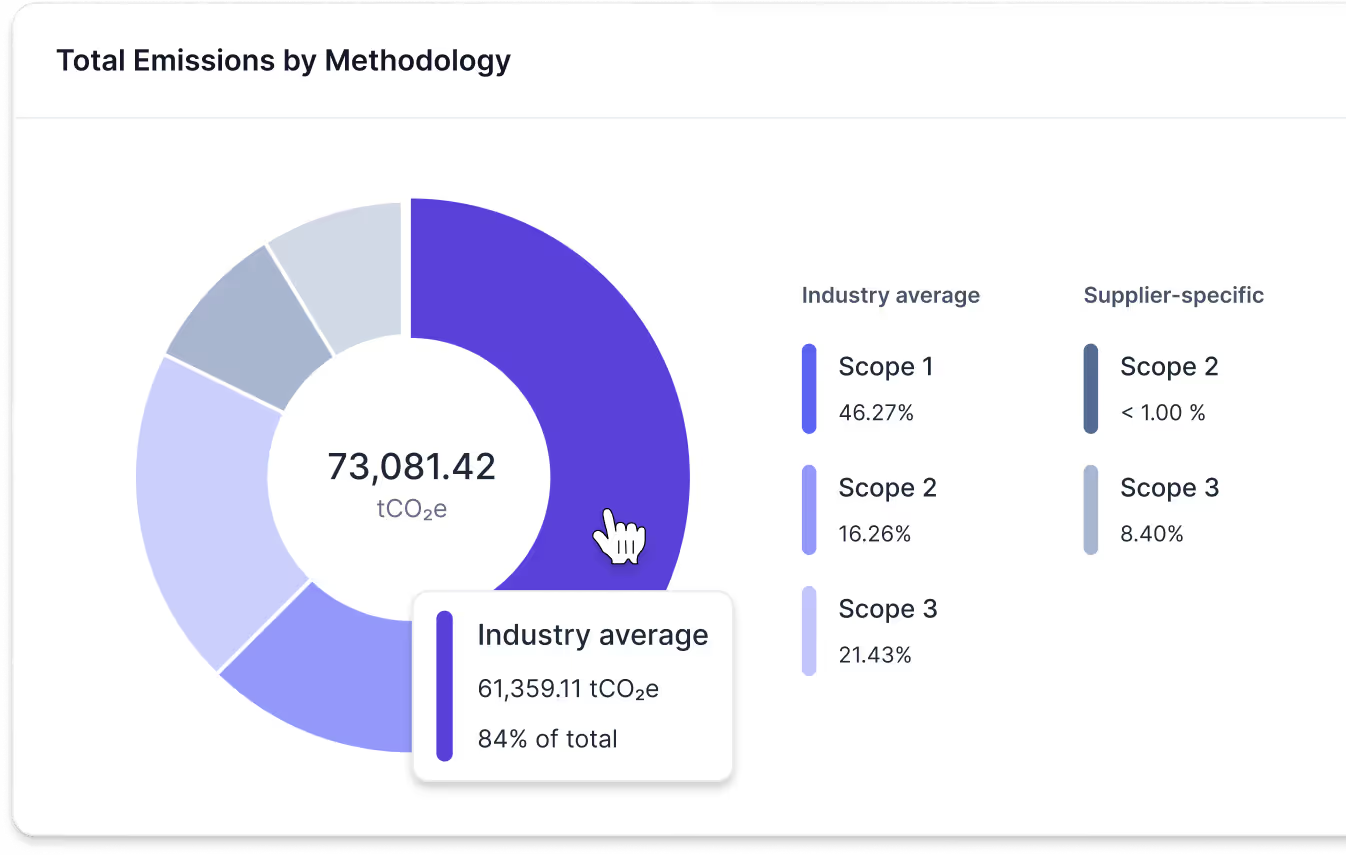Centrally manage sustainability data for CSRD, VSME, and EU Taxonomy – with a single source of truth for the manufacturing mid-market.


Easily connect existing systems for automated and centralized ESG data collection.
Meet regulatory requirements such as CSRD, EU Taxonomy, and GRI with minimal effort.
Identify optimization potential in ESG data and derive targeted measures to improve sustainability performance.
ESG stands for Environmental, Social, and Governance. The term refers to key sustainability criteria that companies use to measure, manage, and transparently report their environmental and social impact, as well as their corporate governance practices. ESG is becoming increasingly important – both for investment decisions and as part of legal reporting requirements such as the CSRD (Corporate Sustainability Reporting Directive).

Strengthen market position with traceable ESG reporting and address customer inquiries.
Meet the ESG expectations of investors and banks – for better financing conditions and increased attractiveness in the capital market.
Reliably and audit-proofly meet regulatory requirements with automated ESG data collection and regular updates.

Carbon Management
ESG
Reporting
Supply Chain Management
Environmental data management and optimization



Full coverage of mandatory reporting standards



Product-level analytics and RFP optimization



Primary data collection from suppliers



Full compliance coverage and risk assessment



AI-based data management



Management and optimization of environmental data
Tanso Software

Pure software solution for:
Carbon Management

ESG Reporting

Supply Chain Management

Complete coverage of legal reporting standards
Tanso Software

Pure software solution for:
Carbon Management

ESG Reporting

Supply Chain Management

Product-level analysis and optimization for tenders (RFPs)
Tanso Software

Pure software solution for:
Carbon Management

ESG Reporting

Supply Chain Management

Request for primary data from your suppliers
Tanso Software

Pure software solution for:
Carbon Management

ESG Reporting

Supply Chain Management

Full coverage of compliance standards and risk assessment
Tanso Software

Pure software solution for:
Carbon Management

ESG Reporting

Supply Chain Management

AI-based data management
Tanso Software

Pure software solution for:
Carbon Management

ESG Reporting

Supply Chain Management





























Implementation, regulatory details, and more. Find your answers here.
Tanso automates the collection and consolidation of ESG data with AI-powered workflows and TÜV-certified methodology. This enables companies to produce audit- and standard-compliant reports for CSRD, EU Taxonomy, and other standards with minimal effort.
The biggest challenges are data quality, heterogeneous systems, missing interfaces, and regulatory complexity. Companies can overcome these by using a centralized platform with automated data collection and clear processes.
ESG reporting involves collecting data on environmental aspects (e.g., emissions, energy consumption), social aspects (e.g., working conditions, diversity), and governance aspects (e.g., compliance, corporate management). This data is centrally collected and used for reports and stakeholder requests.
Depending on their size and industry, companies must comply with standards such as the CSRD (Corporate Sustainability Reporting Directive), the EU Taxonomy, and international frameworks like GRI (Global Reporting Initiative). These require the publication of audited, comparable ESG data.
ESG reporting refers to the structured collection and disclosure of environmental, social, and governance data. It is important for creating transparency, meeting regulatory requirements, and building trust with investors, customers, and partners.